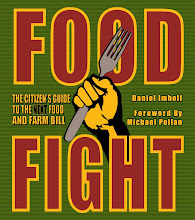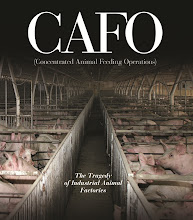The unmaking of the America that used to make things was a gradual wearing away. Early industrialization centered in the northeast. Then it crept slowly across the south, like a great blight, leaving a rust belt in its wake. (Before we outsourced overseas, we had a lot of practice outsourcing in our own country.) It is almost impossible for me to return to my childhood home anymore without feelings of deep despair. Economic development has all but stagnated. The woods and farms have long been carved up for golf courses and mutant housing developments (many unoccupied) that serve as a tax haven for commuters to Baltimore (an hour drive to the south). Nearly all manufacturing eventually moved offshore: first to Japan then Taiwan, Hong Kong, South Korea, Indonesia, India, China, Viet Nam, moving like a domino effect to wherever people are willing to work for less than the last outsourcing mecca. What wasn’t outsourced to Asia ended up in Central America, especially to the maquiladoras along the U.S.-Mexico border once NAFTA passed.
The American financial system found a new way to grow the economy: credit. If everyone lived on credit, we could keep buying all the stuff that had been outsourced and was now piling high in malls and box stores, which had in turn outsourced most of the traditional local retailers as well. Once the credit ran out in America, the countries that were making the goods began extending the credit. We know all too well the outcome of that story when the bills finally came due. The banks were too big to fail. But millions of people lost their homes and without any manufacturing sector to speak of, or money to pay for stuff, the economy ground to a halt.
Global swings of money and economic power are not new to history or the international economy. In the nineteenth century, when a country’s worth and economy were actually based upon real assets like how much gold bullion and silver were in the government coffers, western trading nations became more than a bit rattled when vast stores of their wealth were being shipped off to Asia to meet rising demand for things like pepper, tea, silk, and other goods. The English retaliated by smuggling opium into China. This was done against the direct wishes of the emperor who cautioned his people against what a narcotic addiction would do to their cultural fabric. But like, credit and cheap disposable things that make life convenient, opium is a powerful addiction.
In a shameful effort to regain their vanishing wealth, the English bought opium from India and transported it into China only in return for gold. This way they cracked the nearly impenetrable fortress of the Imperial Chinese economy. Ultimately, it signaled the beginning of modernization, decade after decade of internal wars and revolution, and the end of dynasty rule in China.
Today, we Americans are faced with our own self-imposed addiction — we are strung out on the consumption of disposable products that fuel our convenience-driven lifestyles. Imagine that one of the biggest export items from California, among the world's ten most powerful economies, is recycled cardboard, from the boxes used to import all the cheap outsourced products. We are credit junkies, living by turning our houses and mortgages into ATM machines, and doing all in our powers to keep the faucet of cheap outsourced products flowing. Unlike imperial China, our economic leaders do not caution us to be more disciplined. Instead we are asked to grow the economy once more by consuming — keeping that addiction satisfied — rather than building an infrastructure to make things for ourselves. Consumption detached from production is an opiate, something that may satiate us from purchase to purchase, but keeps us from dealing with the real enemy at the gate. The totally outsourced life, in which purpose and the making of basic necessities has tragically gone missing.









